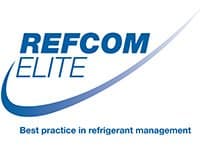There was quite a lot of optimism following the signing of the Paris Climate Change agreement back in April 2016. Most countries had signed up on the deal and even major carbon polluters like India and China were on board. For once, there appeared to be accord rather than discord.
Unlike previous agreements, this one was universal and there was a real sense that we were going to be able to mitigate global warming as World leaders gathered together to sign it.
Paris Climate Change Agreement Changes
Since then, a few things have changed and unfortunately there is a less optimistic outlook on the future of the agreement. Perhaps one of the biggest changes was the US pulling out of the agreement which was largely condemned nationally and internationally.
The good news is that it hasn’t, in truth, affected things much. Over the last two years, there has been more investment in electric vehicle technology. The UK government has pledged to decarbonise our heating by introducing subsidies for those who install low carbon boilers and heaters. They’ve assured both diesel and petrol cars would be removed from the market over the next couple of decades.
Energy production has also reached a tipping point. The cost of solar power has come down, driven in part by cheap manufacturing in China. Wind power is providing a greater cut of the world’s energy and research and development is being pushed into developing a wide range of products from better power storage to harnessing the power of tidal currents.
Paris Climate Change Agreement and Air Conditioning
In step with these changes, air conditioning is becoming greener and 2018 should see this trend develop further. Companies like Daikin, one of the leading manufacturers of air conditioning in the world, have taken the lead when it comes to helping to reduce harmful greenhouse gases and reduce the impact on the environment.
Expect to see systems becoming more energy efficient and the greater use of smart technology to control output over the next 12 to 18 months. The industry has already made huge strides in getting rid of R22, a group of hydrofluorocarbons that were used in older systems. Expect also to see more systems incorporating heat pumps which draw the air from outside and use a kind of reverse refrigeration process to help heat the air.
As one of the biggest installers of air conditioning in Bristol, we focus a lot of our attention on delivering high quality systems that help businesses and other commercial premises to reduce their carbon footprint. As a Daikin D1+ approved installer, we are entrusted to provide the best possible service for our clients.
If you’d like to find out more about environmentally friendly air conditioning units you can call us on 0117 952 3355 or you may want to fill in our contact form and we will get back to you.






